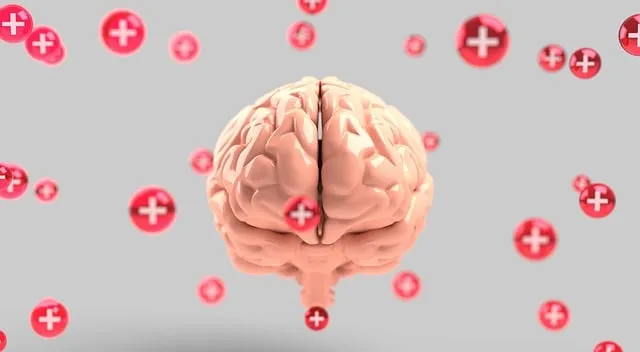The Westminster Kaiser Permanente mental health center prioritizes stigma reduction through innovative programs like Crisis Intervention, Mental Wellness journaling, and Coping Skills development, empowering patients and fostering understanding. They utilize workshops, presentations, and peer support to demystify mental health, challenge stereotypes, and create an inclusive environment. By advocating for equal access and implementing policy reforms, the center has achieved significant progress in stigma reduction, improving emotional well-being within their community.
“Mental illness stigma remains a significant barrier to seeking treatment, as evidenced by hesitancy among individuals in Westminster. This article explores targeted efforts to reduce stigma within the Westminster Kaiser Permanente mental health center. From understanding its profound impact on patient behaviors to implementing educational initiatives and peer support programs, we delve into innovative strategies. Additionally, we examine media representation’s role in shaping public perception and advocate for policy changes promoting equitable access to care at this pivotal institution.”
- Understanding Stigma: Its Impact on Mental Health Seeking Behaviors at Westminster Kaiser Permanente
- Educational Initiatives: Breaking Down Misconceptions at the Mental Health Center
- Peer Support Programs: Empowering Recovery Stories in Westminster
- Media Representation and its Role in Shaping Public Perception of Mental Illness
- Policy Changes: Advocacy for Equitable Access to Care at the Kaiser Permanente Mental Health Center
Understanding Stigma: Its Impact on Mental Health Seeking Behaviors at Westminster Kaiser Permanente

At Westminster Kaiser Permanente mental health center, understanding stigma is a cornerstone of their approach to patient care. Stigma significantly influences how individuals perceive and seek mental health support, often leading to delays in treatment or avoidance altogether. It creates a barrier that prevents people from discussing their struggles openly, seeking professional help, and engaging in proactive measures for maintaining mental wellness. This can have devastating consequences, exacerbating symptoms and negatively impacting overall well-being.
Westminster Kaiser Permanente addresses stigma through various initiatives including Crisis Intervention Guidance, Mental Wellness Journaling Exercise Guidance, and Coping Skills Development programs. These strategies not only aim to destigmatize mental illness but also empower individuals with the tools and knowledge needed to navigate their mental health journeys effectively. By fostering an environment of understanding and acceptance, the center encourages open conversations about mental wellness, ensuring that those in need receive timely support and care.
Educational Initiatives: Breaking Down Misconceptions at the Mental Health Center

At the Westminster Kaiser Permanente mental health center, educational initiatives play a pivotal role in stigma reduction efforts. Through interactive workshops and engaging presentations, the center aims to break down misconceptions surrounding mental health issues. These programs focus on raising awareness about various conditions, their symptoms, and available treatments, empowering individuals to recognize signs early on. By fostering open conversations, they encourage community members to approach mental health with empathy rather than judgment.
The Westminster Kaiser Permanente Community Outreach Program Implementation leverages these educational efforts to reach a wider audience. By engaging in resilience-building activities and promoting Mental Health Awareness, the center cultivates an environment where individuals feel supported and less afraid to seek help. This holistic approach not only reduces stigma but also fosters a community that prioritizes collective mental well-being.
Peer Support Programs: Empowering Recovery Stories in Westminster

In Westminster, the Kaiser Permanente mental health center has initiated groundbreaking Peer Support Programs, offering a unique approach to mental illness stigma reduction. These programs harness the power of personal stories and recovery experiences, empowering individuals who have successfully navigated their own mental health journeys. Trained peer supporters provide a safe space for individuals struggling with depression or other mental health challenges, fostering open conversations and sharing practical self-care practices. By doing so, they challenge societal norms and promote understanding, compassion, and Cultural Sensitivity in Mental Healthcare Practice within the local community.
The Peer Support Programs at Kaiser Permanente Westminster serve as a powerful tool in the fight against stigma, encouraging individuals to embrace their stories and find hope in others’ resilience. Through these initiatives, the center aims to create an inclusive environment where everyone can access support, share resources, and cultivate coping strategies for improved mental well-being, ultimately enhancing Depression Prevention efforts.
Media Representation and its Role in Shaping Public Perception of Mental Illness

The media plays a pivotal role in shaping public perceptions about mental illness, often influencing how society understands and responds to conditions like those treated at the Westminster Kaiser Permanente Mental Health Center. Positive representations can foster empathy and reduce stigma, encouraging open conversations about mental health. Conversely, negative or stereotyped portrayals can perpetuate misconceptions, leading to increased fear and discrimination.
Media narratives have historically portrayed mental illness as a personal weakness or even a moral failing, contributing to societal stigmatization. However, recent efforts to showcase the humanizing aspects of mental health struggles, including stories of resilience and recovery, are making inroads. These representations aim to normalize conversations around emotional intelligence and anxiety relief, ultimately promoting mental wellness and challenging existing narratives at facilities like the Westminster Kaiser Permanente Mental Health Center.
Policy Changes: Advocacy for Equitable Access to Care at the Kaiser Permanente Mental Health Center

At the Westminster Kaiser Permanente mental health center, significant strides have been made in reducing stigma associated with mental illness through policy changes and advocacy for equitable access to care. The center has implemented robust risk management planning for mental health professionals, ensuring a safe and supportive environment that fosters effective treatment. This includes comprehensive training programs aimed at enhancing practitioners’ emotional well-being promotion techniques and emotional regulation skills, thereby reducing the potential for countertransference and burnout.
By promoting a culture of understanding and empathy within the organization, Kaiser Permanente Westminster has made mental health care more accessible to all. They actively engage in community outreach programs that educate the public about various mental health conditions, dispelling myths and stereotypes. These efforts have significantly contributed to breaking down barriers and encouraging individuals to seek help without fear of judgment or discrimination, ultimately leading to improved emotional regulation for those in need.
In conclusion, the multifaceted approach to mental illness stigma reduction in Westminster Kaiser Permanente mental health center demonstrates that understanding, education, and support are powerful tools. By addressing misconceptions through educational initiatives, empowering recovery stories with peer support programs, and advocating for policy changes, the center is fostering a more inclusive environment where individuals can seek and receive necessary mental health care without fear of judgment. These efforts not only benefit the individuals directly affected but also contribute to a healthier, more supportive community as a whole.






